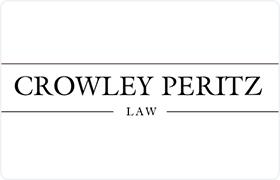Aldie Criminal Lawyer, Virginia
Sponsored Law Firm
-
 x
x

Click For More Info:
-
Crowley Peritz Law
10560 Main Street Suite 501 Fairfax, VA 22030» view mapCriminal Defense Law Over 20 Years Of Combined Experience
Our lawyers are experts in a variety of misdemeanor and felony crimes. We understand that choosing the best criminal lawyer for your case is not a simple task.
800-916-2741
FREE CONSULTATION
CONTACTBrian L. Olion
Litigation, Employment Discrimination, Criminal, Personal Injury
Status: In Good Standing Licensed: 9 Years
Walter C. Jacob
Landlord-Tenant, Divorce & Family Law, Criminal, Accident & Injury
Status: In Good Standing
 Matthew Crowley Fairfax, VA
Matthew Crowley Fairfax, VA Practice AreasExpertise
Practice AreasExpertise
